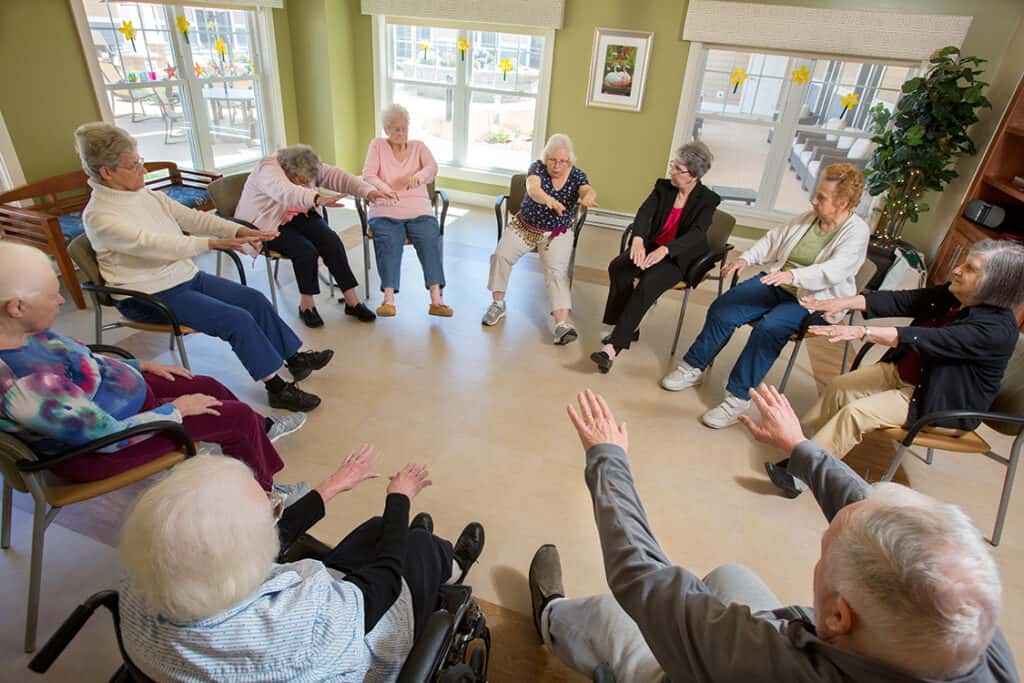Learn about personalized Assisted Living plans for elderly residents.
Learn about personalized Assisted Living plans for elderly residents.
Blog Article
Aided Living: a Compassionate Setting for Elders With Memory Difficulties
By providing individualized treatment and structured routines, these areas not only improve cognitive feature but likewise foster psychological connections, minimizing seclusion among citizens. The performance of these interventions commonly hinges on the involvement of households in the treatment procedure, prompting a better exam of how this collective initiative affects outcomes for both citizens and enjoyed ones.
Understanding Memory Challenges
Comprehending memory difficulties is essential for offering efficient treatment to elders facing cognitive decline. Memory disabilities, which can materialize as lapse of memory, complication, or trouble recalling current events, are frequently signs and symptoms of problems such as Alzheimer's condition or various other kinds of dementia. These obstacles can dramatically impact a senior's ability to carry out everyday tasks, preserve social connections, and handle individual safety and security.
Identifying the numerous stages of cognitive decline is important for caretakers and health care experts. Early-stage memory loss may include moderate forgetfulness, while mid-stage decline can lead to much more pronounced disorientation and confusion. In late-stage dementia, individuals might shed the capacity to connect efficiently, requiring detailed assistance and understanding from caregivers.
This requires a compassionate strategy to care that focuses on the emotional health of the individual. Inevitably, a deep understanding of these difficulties is fundamental to delivering compassionate and efficient care for elders facing cognitive decrease.
Benefits of Assisted Living
Aided living offers countless advantages for elders with memory difficulties, providing a helpful setting that promotes freedom while guaranteeing safety and security and care. Among the primary advantages is the round-the-clock guidance and aid offered, which aids mitigate dangers related to memory-related issues. Assisted Living. This consistent support enables elders to take part in day-to-day activities without the worry of accidents or complication
Furthermore, assisted living facilities usually supply organized routines that can boost cognitive function and security. These routines help citizens feel even more secure and decrease anxiousness, as they know what to expect every day. Social communication is an additional substantial benefit, as these atmospheres motivate links amongst residents, promoting emotional wellness and lowering feelings of isolation.
Furthermore, helped living staff are educated to acknowledge the one-of-a-kind needs of seniors with memory difficulties, enabling for individualized care plans that attend to specific choices and needs. This customized approach not only enhances the quality of care but also equips seniors to preserve a sense of autonomy. In general, assisted living functions as a caring service, balancing the requirement for support with the desire for independence in the lives of seniors facing memory challenges.
Specialized Treatment Approaches
Implementing specialized treatment techniques is necessary for successfully sustaining senior citizens with memory difficulties. These customized techniques focus on enhancing the quality of life and cultivating self-reliance while attending to the special requirements of individuals with cognitive impairments. One basic technique is person-centered care, which emphasizes the importance of recognizing each citizen's life history, preferences, and worths. By customizing care plans as necessary, personnel can produce a more interesting and significant environment.
Another essential method entails using cognitive stimulation treatments. Activities created to enhance memory recall, motivate social interaction, and advertise imagination can significantly influence locals' total health. Methods such as memory therapy utilize personal memories to trigger conversation and link, while songs therapy can stimulate emotions and memories, supplying convenience.

Creating a Helpful Area
(Dementia Care Charlotte)A supportive area plays a critical duty in improving the lives of elders with memory challenges. Such an area fosters an environment of understanding, empathy, and motivation, which is important for people encountering cognitive troubles. By developing a network of assistance, assisted living facilities can dramatically improve the lifestyle for residents.
Central to a supportive area is the visibility of qualified staff who are delicate to the distinct requirements of elders with memory impairments. These experts not just supply essential care yet also engage citizens in purposeful activities that boost cognitive feature and promote social interaction. Programs that encourage involvement in group exercises, arts look at here now and crafts, or memory games can enhance both physical and mental wellness.
In addition, a supportive area promotes strong connections among residents. Encouraging friendships and peer support helps to decrease feelings of isolation and promotes a sense of belonging. Regular gatherings and communal dining experiences can even more strengthen these bonds, creating an environment where senior citizens feel valued and comprehended.
Involving Households in Care
Engaging families in the treatment procedure is crucial for giving thorough assistance to senior citizens with memory difficulties. Relative often function as crucial advocates, offering understandings into the person's preferences, history, and regimens that can improve tailored treatment. By including them in discussions and treatment preparation, helped living facilities can develop a much more alternative approach that reverberates with the citizen's needs.

Motivating family members to take part in treatment not just improves the health of the senior however additionally provides emotional assistance to family members. Entailing families in treatment grows a sense of neighborhood and belonging, making certain that seniors feel attached to their enjoyed ones. Ultimately, a collective strategy to care enriches the lives of both locals and their households, developing a thoughtful and supportive atmosphere that advertises dignity and respect.
Conclusion
In verdict, aided living offers as a vital resource for seniors experiencing memory challenges, supplying individualized treatment tailored to private needs. By involving family members in the treatment procedure, helped living produces an extensive support network, inevitably improving the lives of citizens and their liked ones.
Report this page